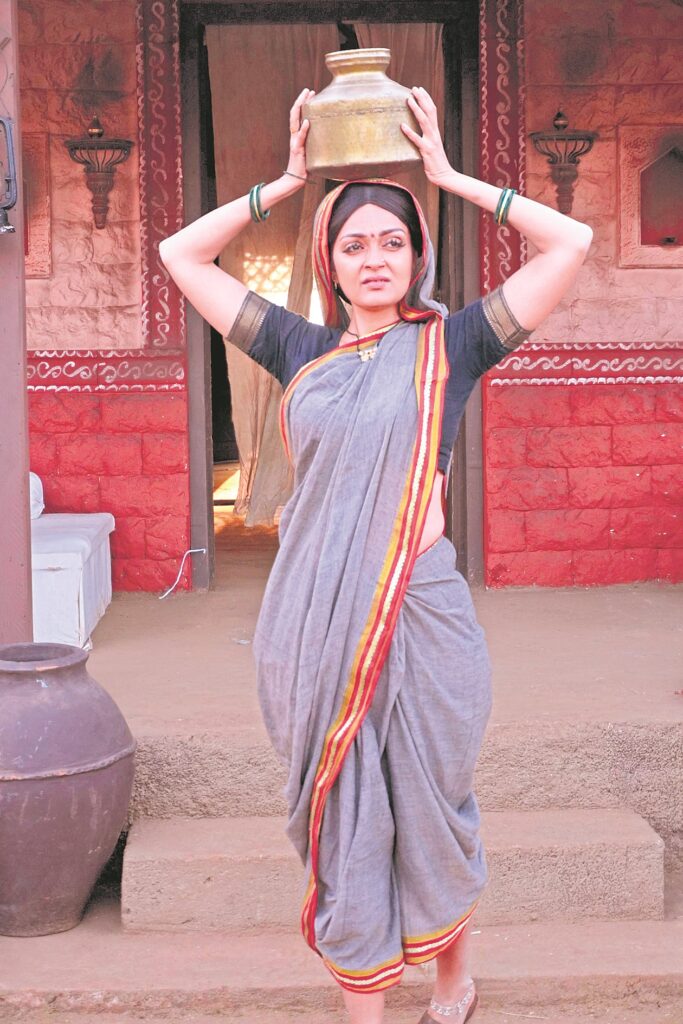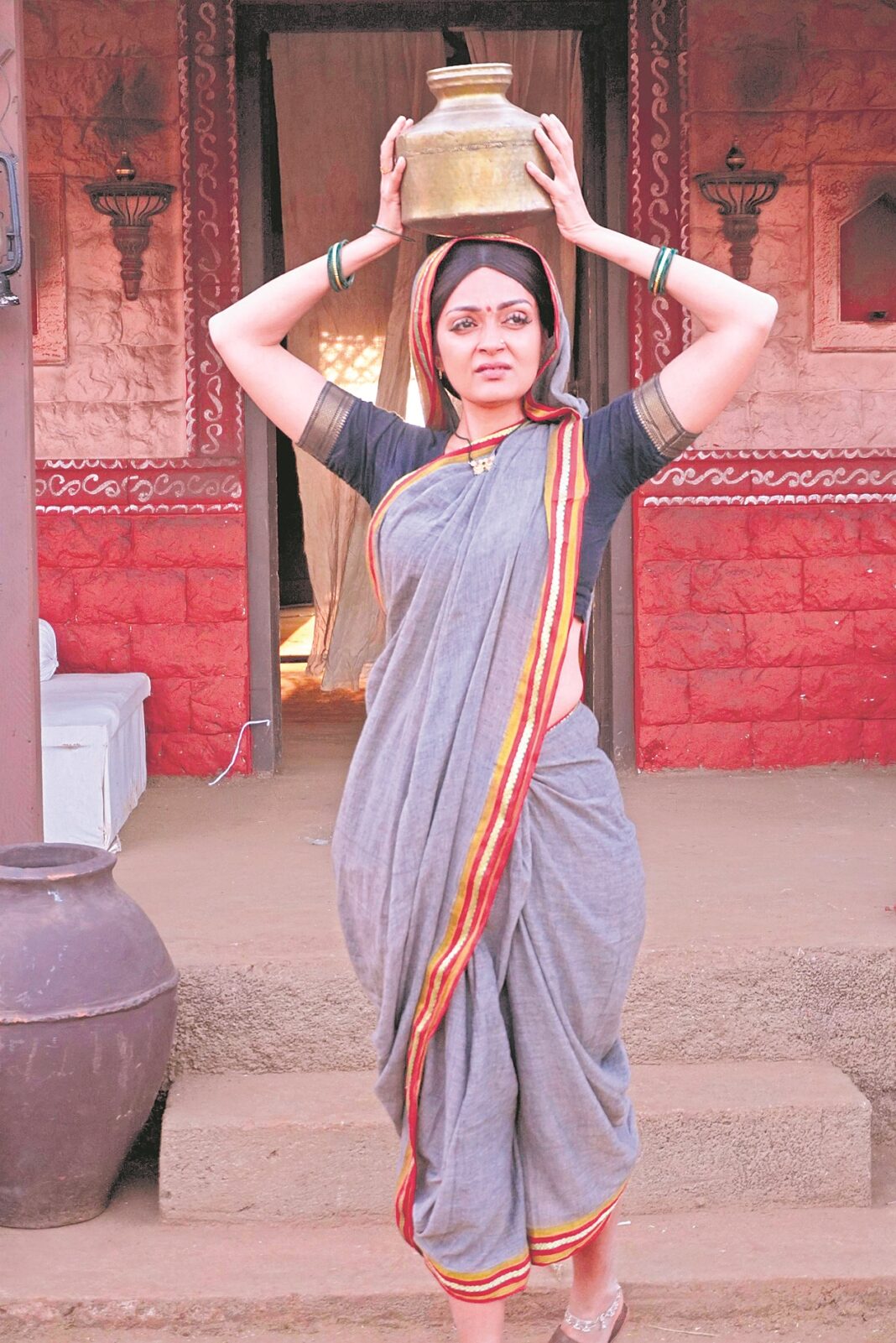In Sant Tukaram, Sheena Chohan delivers a hauntingly powerful performance as Avali Bai—a woman of few words but immense spirit. In an exclusive chat with The Pioneer, Sheena shares how she immersed herself in the emotional, physical, and spiritual dimensions of the role, portraying Avali not as a silent shadow of a saint, but as the strength behind a revolution
Highlighted quote: Working on this character from the very beginning with my director Aditya Om was a soul-connecting experience. The character has a real arc, and when I first heard the story, it touched me deeply. It’s rooted in Indian culture and speaks of overcoming barriers for caste and gender equality. Avali starts as a fighter against her own husband, then grows to support him in creating a spiritual revolution.

Tejal Sinha
Sheena Chohan is no stranger to powerful roles, but in Sant Tukaram, where she essays the quietly formidable Avali Bai, she steps into a world filled with silences that speak louder than words, love that transcends obstacles, and spirituality that binds generations. As the soul of the film—both according to critics and audiences—Sheena’s performance as Tukaram’s wife is grounded in stillness, strength, and sincerity. In this exclusive conversation with The Pioneer, she opens up about the emotional and spiritual journey she undertook to bring Avali to life, working with director Aditya Om and actor Subodh Bhave, and the joy and challenge of portraying a revolutionary woman who has long lived in the margins of history.
“I’m actually very honored that critics are calling Avali the soul of the film,” Sheena begins. “Working on this character from the very beginning with my director Aditya Om was a soul-connecting experience. The character has a real arc, and when I first heard the story, it touched me deeply. It’s rooted in Indian culture and speaks of overcoming barriers for caste and gender equality. Avali starts as a fighter against her own husband, then grows to support him in creating a spiritual revolution. That journey is so rich—it had to be lived, not just performed.”
Drawing from her deep-rooted theater background and her dedication to research, Sheena delved into Avali’s world with rare empathy and detail.
“I read every available text on Avali, even hired Marathi translators to understand books that weren’t in English,” she says. “But I also made sure not to portray her with over-reverence. That can make the character feel inaccessible. Like Kasturba was to Gandhi or Sita was to Ram, Avali was a powerful presence. These women often remain unnamed or unsung, but they were the strength behind spiritual giants. That was my responsibility—to make Avali three-dimensional, flawed, and real.”
Her performance, marked by long silences and understated strength, was consciously constructed through a balance of preparation and surrender.
“The strength and vulnerability came from understanding Avali deeply,” Sheena explains. “I focused on the three C’s—creation, character, and communication. Creation and character, I worked on myself. But communication needed my director and my co-actors. There was a beautiful trust and exchange between us. Director Aditya Om allowed me the space to bring my own truth to the role, and in that blending of truths—the character’s and mine—the magic happened.”
It’s impossible to ignore the stillness and spiritual intensity that Sheena brought to Avali on screen—a quality that didn’t go unnoticed.
“That stillness was both conscious and organic,” she reflects. “Aditya’s vision was crystal clear, and he guided me while also trusting me to use my own intensity. Cinema is ultimately a director’s medium, and his passion, vision, and guidance helped me align with Avali’s essence. I could give him everything I had—research, emotion, instinct—and he would shape it with detail and care.”
Sheena’s understanding of devotion—beyond the spiritual into emotional and societal dimensions—deepened profoundly during the process.
“I feel so proud to be part of this retelling of Sant Tukaram’s story. It’s part of our nation’s DNA. I grew up in Calcutta, born in Chandigarh, and now live in Bombay. Even I studied Tukaram in school. When I was offered this film, I realised we were being entrusted with the keys to a treasure box—bringing his story to a new generation. My role was to give Avali her grace, courage, and dignity. And Subodh Bhave, who plays Tukaram, was instrumental in this. His energy and generosity allowed me to respond, react, and create a lived-in emotional bond.”
Subodh, often called the “biopic king,” was not just a co-star but a collaborator in the truest sense.
“He’s done 90 films and comes from theater too. But he never let the ‘star’ come in the way. He would give me just a word or a glance, and that would be enough to go deeper into Avali. It’s rare—this sort of communication and exchange. When it happens, it’s magical. I’m forever grateful to him.”
The film’s emotional core wasn’t without challenges. Sheena shares a particularly intense scene that pushed her beyond her comfort zone—one set during a famine.
“There’s a scene where Avali runs out of the house during a famine, and a bowl of rice falls to the ground. There are three women, starving, and we’re crying while picking up rice from the earth to eat. I’ve never done a scene like that—it was emotionally draining. To imagine that pain, that hunger… it’s not just acting. It’s living someone else’s agony. I used instinct, empathy, imagination, and, most importantly, surrender to the director’s vision.”
Amid the heat, heavy traditional costumes, and shooting in the historic wadas of Maharashtra (the same locations as Bajirao Mastani), Sheena found herself reconnecting with her theater roots.
“These waras are like fairy tales. The palaces transport you. And being in that world, in those costumes, it really brought me back to my theater days. We used to live in our characters, not just perform. That’s what happened here.”
Spirituality is at the heart of Sant Tukaram, and it found deep resonance with Sheena’s personal beliefs.
“There are things we can see—like chairs, props. And then there are things we can’t—like courage, honor, spirit. That’s what spirituality is for me. The film taught me that real spirituality is about knowing who you are, respecting that, and seeing God in others too. Avali was deeply spiritual, not in ritual, but in strength and sacrifice.”
To embody a woman like Avali, Sheena focused not on trying to define her traits, but by observing and feeling the emotional decisions she makes.
“Human beings are messy. Emotions don’t arrive one at a time—they tumble in together. So rather than trying to list Avali’s qualities, I tried to live her decisions. She’s human. That’s what I held on to—her humanity. I tried to see the world through her eyes.”
Her commitment to authenticity extended beyond the sets. During breaks, Sheena would immerse herself in the villages they were shooting in.
“I would go sit with the local women in their huts while they cooked bhakris. I ate with them, watched their body language, how they moved. Aditya was very particular—he wanted Avali to move like a woman from those villages. Not how we walk in cities. That grounding helped shape her physicality.”
In the end, Sheena Chohan’s portrayal of Avali Bai is a triumph of empathy, preparation, and passion. Her performance doesn’t just present a character—it embodies a presence that lingers long after the film ends.
“Audiences have been coming up to me after shows, saying they see themselves in Avali. That’s the real reward—when you make someone feel seen, heard, and understood. That’s when you know you’ve done your job.”




